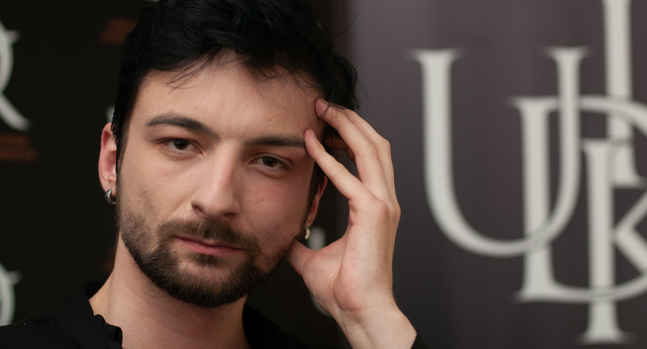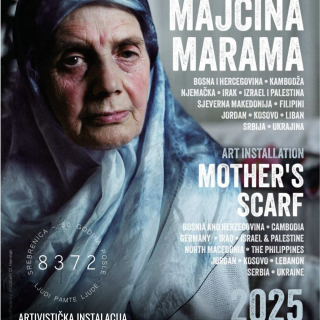In a country where ethnic apartheid rules, the most difficult thing is to be a Bosnian and Herzegovinian. This group of inhabitants is not only a minority, but is also not legally recognised by its own home country. Being part and keeping up the tradition of a minority people in Bosnia and Herzegovina actually means being a second-class citizen. There is no space for discussion about their rights, which are either non-existent or neglected. Other minority people are also classified as Others, just as persons who define their identity based on their affiliation to the country. There are seventeen of them.[1] According to the 2013 population census, there were 130,054 Others in Bosnia and Herzegovina.[2] In terms of percentages, they constitute 3.7% of citizens of the country.
When it comes to constituent peoples, members of these ethnic groups are frequently also minorities. For example, almost nobody is dealing with the position of Bosniaks in the entity Republika Srpska. There is almost no interest in their return and facing the difficult past. War criminals have won. Annex 7 has failed. However, the government, the international community, but also a large number of NGOs in that entity are not concerned at all by the fact that the other two constituent peoples are trying to call the mother tongue of Bosniaks Bosniak instead of Bosnian. Shouldn’t Bosniaks themselves know what their mother tongue is called? If they call it Bosnian, then others should respect this as well.
In the same entity, Milorad Dodik is denying the existence of Bosniaks. He is reducing them to a religious group. Every municipality, city or institution celebrates a patron saint. What does a non-Serb student think about the icon of Saint Sava in the classroom? Only that it is undesirable. Isn’t it obscene that every January 9 we are witnesses of Serb youth raging through the streets of towns where Bosniak returnees live? These hooligans, who do not even remember the war, are now terrorizing the local population that had the courage (and was frequently also forced to do so) to go back to their homes. Isn’t it a civilisational scandal that in the very same region, there is a parade of Chetniks in Višegrad? Bosniaks were killed by persons wearing their insignia during the last two wars. Aren’t the monuments to Dražo Mihajlović and his Chetniks shameful? The smaller of the two Bosnian entities is full of them. Events in and around Srebrenica dating back to July 1995 are always mentioned with caution. The current politics of Republika Srpska is based on the denial of war crimes and genocide. The word genocide is treated as something suspicious. According to persons from Republika Srpska, such a crime happened only in Jasenovac. For the media and politicians, but also the majority of people from this entity, there is nothing controversial about this. Milorad Dodik continues to win the elections.
The opinions of persons in the Federation of Bosnia and Herzegovina are not very different. They would accept to deal with the past under the condition that the crimes committed in Grabovica, Uzdol, Trusina or Kazani are treated as incidents of some outlaw groups. The Mayor of Sarajevo relentlessly points out the honourable role of the Army of the Republic of Bosnia and Herzegovina during the war. A Yugoslav feminist, Neda Božinović, once said that both those that defend themselves and those that attack kill. Persons from Sarajevo are telling persons from Mostar that they need to change the names of streets named after Ustashas, while the capital[3] of Bosnia and Herzegovina still has streets named after Alija Nametak[4], Husein Đozo and Mustafa Busuladžić. Politicians in Mostar have changed the names of some streets. Controversial streets in Mostar and some other towns named after Alojzije Stepinac are still there. It is a half-baked endeavour that shows that transitional justice in this entity was approached in a hypocritical manner.
Facing the past and true reconciliation mostly happens between common citizens. Neighbours that had fought against each other today live together again. They are aware that there is no other option. The late Hatidža Điđa Mehmedović used to help her neighbour, a Serb woman. She did not see her through the prism of ethnicity, but rather as a fellow human being. During World War II, Zejneba Hardaga used her veil to cover the yellow David star of her fellow citizen, Rifka Kabiljo, when they were in the streets of Sarajevo. Those are beautiful examples from our history. As opposed to majorities, minorities frequently better understood the sufferance of others due to their experience.
However, the line of the ethnic apartheid has been drawn. National groups found their place on the territory conquered by the relevant armed forces. There are few areas where different ethnic groups truly live together. Living in a multi-ethnic area is rare today. Brčko should be one of these areas. However, there are clear rules on who goes out where, who socialises with whom. Everyone is supposed to take a side. Should they fail to do so, they become a nobody.
On the other hand, when our fellow citizens live in one of the neighbouring countries or even further away, they are Bosnians and Herzegovinians. They cannot run away from it and other people also do not treat them differently. Most of them do not even mind. They socialise. They invite each other into their homes during holidays. They celebrate and sing together. A question that comes to one’s mind is, if they can live together abroad, why are they causing a stir and spreading hatred in their homeland? Is the only way of expressing love towards their homeland and their people by showing a lack of tolerance for others and those who are different, or is it only political manipulation?
Edvin Kanka Ćudić (1988) is a Bosnian human rights activists. He is best known as the leader of the Association for Social Research and Communication (UDIK), an organisation advocating human rights and reconciliation in the former Yugoslavia.
[1] National minorities in Bosnia and Herzegovina (https://www.osce.org/files/f/documents/2/c/110232.pdf)
[2] Analysis: The state (http://www.statistika.ba/)
[3] https://www.oslobodjenje.ba/vijesti/bih/mostar-je-ocitao-lekciju-sarajevu-grad-na-neretvi-se-odrekao-nacista-ali-vlast-u-prijestolnici-na-to-nije-spremna-775778
[4] https://www.oslobodjenje.ba/vijesti/bih/alija-nametak-je-djelovao-u-periodu-ndh-bio-je-sluga-okupatora-625032




